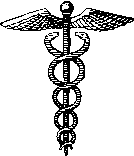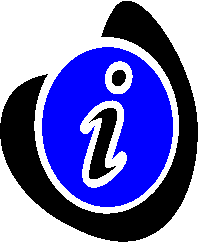New York State
July 2007
Volume 23, Number 7
Medicaid Update
The official newsletter of the New York Medicaid Program
Eliot Spitzer, Governor
State of New York
Richard F. Daines, M.D. Commissioner
New York State Department of Health
Deborah Bachrach, Deputy Commissioner
Office of Health Insurance Programs
Urgent Information
Employee Education Requirement Regarding False Claims Recoveries
There are new requirements in place for health care entities and their business associates. Find out if this applies to you!
Policy and Billing Guidance
Reminder: Medicaid Enrollees Cannot be Billed
Medicaid enrollees, including those enrolled in Medicaid Managed Care plans, cannot be billed for services.
Preferred Drug Program.
Stay up-to-date with the Preferred Drug Program!
Reminder: New Claim Edit for Pharmacies Begins July 2, 2007
A new claims processing edit on supplies takes effect July 2, 2007, to ensure that Medicaid is billed as a last resort.
New Guidance Recommendations for Developmental Screening for Infants and Young Children
Introducing new guidance from the American Academy of Pediatrics regarding developmental screening tools used to promote early intervention.
Family Planning Benefit Program: Pending Approval for Reimbursement of Follow-up Treatment.
Approval to reimburse for follow-up treatment delivered by Family Planning Benefit providers is pending.
Basal Thermometer Coding Change
The Family Planning Benefit Program announces a coding change for basal thermometers.
Coverage of Immunosuppressant Drugs
Pharmacists who bill for Medicare/Medicaid dual eligibles are advised of appropriate billing for immunosuppressive therapy.
Medicaid Nursing Home/Child (Foster) Care Drug Carve-out List
Announcing the list of drugs carved out of Medicaid nursing home and/or child foster care rates, effective July 1, 2007.
Your Provider Manual is Online
Providers are reminded that their Provider Manual is available online.
General Information
The Diabetes Prevention and Management Toolkit is Here!
Announcing the new Diabetes Prevention and Management Toolkit for practitioners, along with ordering information.

Urgent Information.......
Editor's Note:
Information is contained in this article in two sections:
- Employee Education Requirements; and,
- Health Care Entity Certification Requirements.
Affected entities must certify to the Office of the Medicaid Inspector General that you have complied with the employee education requirements by October 1, 2007, and each year thereafter by January 1st.
Readers are strongly encouraged to read this article in its entirety!
Employee Education Requirement Regarding False Claims Recoveries
Return to Table of Contents
The Deficit Reduction Act of 2005 instituted a requirement for health care entities which receives or makes $5.0 million or more in Medicaid payments during a federal fiscal year to establish written policies and procedures informing and educating their employees, contractors and agents about federal and state false claim acts and whistleblower protections.
Health Care Entity
- a governmental or component agency providing Medicaid health care items or services for which Medicaid payments are made, or
- An organization, unit, corporation, partnership, or other business arrangement including any Medicaid managed care organization, irrespective of the form of business structure or arrangement by which it exists, whether for-profit or not-for-profit, which receives or makes payments under Medicaid.
If an entity furnishes items or services at more than a single location, under more than one contractual or other payment arrangement, or uses more than one provider or tax identification number, it is the aggregate of all payments to that entity that are used to determine if the entity reached the $5.0 million annual threshold.
These requirements are separate from, but related to, the mandatory provider compliance programs under New York Social Services Law § 363-d. More information regarding compliance programs is available online at:
http://www.omig.state.ny.us/data/content/view/79/36/
Section 1: Employee Education Requirement
A covered health care entity must establish and disseminate detailed written policies regarding:
- the federal False Claims Act;
- the New York State False Claims Act;
- the specific statutory and regulatory provisions named in section 1902(a)(68)(A) of the Social Security Act;
- any other applicable state civil or criminal laws and state and federal whistleblower protections; and,
- information regarding the health care entity's policies and procedures for detecting and preventing waste, fraud and abuse
"Contractor" or "Agent"
- Any contractor, subcontractor, agent, or other person which or who, on behalf of the entity, furnishes, or otherwise authorizes the furnishing of Medicaid health care items or services, performs billing or coding functions, or
- is involved in monitoring of health care provided by the entity
to all employees (including management), contractors or agents of the health care entity.
A summary of these State and federal laws is online at:
Written policies may be on paper or in electronic form, but must be readily available to all employees, contractors, or agents of the health care entity.
It is the responsibility of each health care entity to establish and disseminate written policies for compliance by its contractors or agents.
Employee Handbook
If the health care entity has an employee handbook, then the handbook must include therein:
- a specific discussion of the laws described in the written policies,
- the rights of employees to be protected as whistleblowers, and,
- a specific discussion of the health care entity's policies and procedures for detecting and preventing fraud, waste, and abuse.
There is no requirement that a health care entity create an employee handbook if none already exists.
Section 2: Health Care Entity Certification Requirements
Oversight of this new requirement for affected New York enrolled Medicaid providers will primarily be the responsibility of the Office of the Medicaid Inspector General (OMIG), which will incorporate criteria to address these mandates into its periodic audits and investigations.
Each applicable health care entity is required to submit to OMIG on or before October 1, 2007,and on or before January 1 every year thereafter a certification:
- that it maintains the written policies,
- that any employee handbook includes materials required under the above mandates, and
- that they have been properly adopted and published by the health care entity, and disseminated among employees, contractors and agents.
The written policies and any employee handbook shall be retained for a period of six years from the latter of the due date or the actual date of submission of the certification.
During audits, OMIG will review the certifications of the health care entity, the written policies and any employee handbook maintained by the health care entity, for compliance with the Social Security Act and any additional requirements of which health care entities are notified.
The Centers for Medicare and Medicaid Services may, at its discretion, independently determine health care entity compliance with this regulation.
Certification Form
The certification form is available online at:
Those without access to the internet can write to the OMIG requesting copies of the form OR can contact the Office of the Medicaid Inspector General at (518) 473-3782.
Once completed, the certifications should be mailed to:
STATE OF NEW YORK
OFFICE OF THE MEDICAID INSPECTOR GENERAL
ATTENTION: DRA COMPLIANCE
RIVERVIEW CENTER, 150 BROADWAY
ALBANY, NEW YORK 12204
Sanctions and Penalties
Failure to timely submit the required certifications, or to bring the written policies and any employee handbook into compliance, may be considered an unacceptable practice and subject the health care entity to sanctions and/or penalties.
Additional Information
For more details on this requirement, please go to:
http://www.cms.hhs.gov/smdl/downloads/SMD121306.pdf
For a list of frequently asked questions, go to:
http://www.cms.hhs.gov/smdl/downloads/SMD032207Att1.pdf
Questions? Please call the Office of the Medicaid Inspector General at:
(518) 473-3782.
Fraud impacts all taxpayers.
Return to Table of Contents
Do you suspect that an enrollee or a provider has engaged in fraudulent activities?
Please call:
1-877-87FRAUD
Your call will remain confidential.
or complete an online Complaint Form at:
www.omig.state.ny.us
Policy and Billing Guidance......
Reminder
Medicaid Enrollees Cannot be Billed
Return to Table of Contents

This is a reminder to all Medicaid providers about requirements of the Medicaid Program related to requesting compensation from Medicaid enrollees, including Medicaid enrollees who are enrolled in a managed care plan and in Family Health Plus.
Acceptance and Agreement
When a provider accepts a Medicaid enrollee as a patient, the provider agrees to bill Medicaid for services provided or, in the case of a Medicaid managed care enrollee, agrees to bill the enrollee's managed care plan for services covered by the contract.
The provider is prohibited from requesting any monetary compensation from the enrollee, or his/her responsible relative, except for any applicable Medicaid co-payments.
Private Pay Arrangements
A provider may charge a Medicaid enrollee, including a Medicaid enrollee enrolled in a managed care plan, only when both parties have agreed prior to the rendering of the service that the enrollee is being seen as a private pay patient.
Note that due to the requirement that PRIOR agreement be made for payment, Medicaid enrollees may never be charged for services rendered in the Emergency Room (except of applicable Medicaid co-payments.)
This must be a mutual and voluntary agreement. It is suggested that the provider maintain the patient's signed consent to be treated as private pay in the patient record.
Medicaid Managed Care vs. Medicaid Fee-for-Service
A provider who participates in Medicaid fee-for-service but does not participate in the enrollee's Medicaid managed care plan may not bill Medicaid fee-for-service for any services included in the managed care plan, with the exception of family planning services.
Such a provider may not bill the enrollee for services that are covered by the enrollee's Medicaid managed care contract unless there is prior agreement with the enrollee that he/she is being seen as a private patient as described above.
The provider must inform the enrollee that the services may be obtained at no cost to the enrollee from a provider that participates in the enrollee's managed care plan.
Collections
A Medicaid enrollee, including a Medicaid managed care enrollee, must not be referred to a collection agency for collection of unpaid medical bills or otherwise billed, except for applicable Medicaid co-payments, when the provider has accepted the enrollee as a Medicaid patient.
Providers may use any legal means to collect applicable unpaid Medicaid co-payments.
Emergency Medical Care
A hospital that accepts a Medicaid enrollee as a patient, including a Medicaid enrollee enrolled in a managed care plan, accepts the responsibility of making sure that the patient receives all medically necessary care and services.
Other than for legally established co-payments, a Medicaid enrollee should never be required to bear any out-of-pocket expenses for medically necessary inpatient services or medically necessary services provided in a hospital based emergency room (ER).
This policy applies regardless of whether the individual practitioner treating the enrollee in the facility is enrolled in the Medicaid Program.
Claim Submission
The prohibition on charging a Medicaid enrollee applies when a participating Medicaid provider fails to submit a claim to Computer Sciences Corporation (CSC) or the enrollee's managed care plan within the required timeframe. It also applies when a claim is submitted to CSC or the enrollee's managed care plan and the claim is denied for reasons other than that the patient was not Medicaid eligible on the date of service.
Claiming Problems
If a problem arises with a claim submission, the provider must first contact CSC or, if the claim is for a service included in the Medicaid managed care benefit package, the enrollee's Medicaid managed care plan.
If CSC or the managed care plan is unable to resolve an issue because some action must be taken by the enrollee's local department of social services (e.g., investigation of enrollee eligibility issues), the provider must contact the local department of social services for resolution.
For questions regarding Medicaid managed care, please call the Division of Managed Care and Program Evaluation at:
(518) 473-0122.
For questions regarding Medicaid fee-for-service, please call the Office of Health Insurance Programs at: (518) 473-2160.
Preferred Drug Program
Return to Table of Contents
Stay up-to-date...

- Providers can request e-mail notification when there are changes made to the Preferred Drug List (PDL). Requests should be sent to:
NYPDPNotices@firsthealth.com - Providers will continue to be notified directly by mail and through the Medicaid Update of the addition of new drug classes to the PDL, or any drugs to the Clinical Drug Review Program (CDRP).
- Those prescribers most affected by changes to the PDL will receive letters that identify Medicaid patients who currently receive drugs that will require prior authorization.
The PDL can be accessed at:
For clinical concerns or Preferred Drug Program questions, please call:
(877) 309-9493.
For billing questions, please call:
(800) 343-9000.
For Medicaid pharmacy policy and operations questions, please call:
(518) 486-3209 or
send an e-mail to:ppno@health.state.ny.us

Medicaid statistics, including the number of monthly Medicaid eligibles and expenditure reports statewide and/or by county, are available online at:
http://www.nyhealth.gov/nysdoh/medstat/medicaid.htm
Reminder
Drugs eligible for payment by Medicare Part B will be added in the near future.
New Claim Edit for Pharmacies Begins July 2, 2007!
Return to Table of Contents
You Must Bill Medicare First!
For an enrollee with both Medicare and Medicaid coverage, all charges for Medicare covered drugs and supplies must be billed to Medicare first.
Effective July 2, 2007, Medicaid implemented claims processing Edit 152 for supplies, to ensure that Medicaid is billed as a last resort when an enrollee is both Medicare/Medicaid eligible (dual eligibles) and the drug or supply is covered by Medicare.
Edit 152 message:
Recipient File Indicates Medicare/No Medicare Present
(i.e., while the enrollee has Medicare coverage, you have not entered any information on your claim regarding Medicare payment).
Drugs will be added in the near future; providers will be notified through the Medicaid Update.
Billing for Medicare/Medicaid Dual Eligibles
Pharmacies must be enrolled in and bill Medicare first in order to bill Medicaid for drugs or supplies provided to dually eligible enrollees. Pharmacies must indicate the Medicare paid amount on the submitted Medicaid claim or payment will be denied.
Pharmacies not enrolled in Medicare and attempting to bill Medicaid for drugs and supplies for dual eligibles will not be paid.
Medicare Quantity Limits - Diabetes
Medicare currently covers 100 diabetes test strips and 100 lancets every three months for non-insulin dependent diabetics. Additionally, Medicare currently covers 100 strips and 100 lancets every month for insulin dependent diabetics without additional documentation.
Information on coverage of larger quantities can be found under Local Coverage Determinations for A4253 and A4259 at: www.Tricenturion.com
Information on Medicare Enrollment can be found at:
www.cms.hhs.gov
For billing questions, please call Computer Sciences Corporation at:
(800) 343-9000.
For information on pharmacy policy, please call the Bureau of Pharmacy Policy and Operations at:
(518) 486-3209.
ATTENTION
Providers Who Render Early and Periodic Screening, Diagnosis and Treatment (EPSDT) or Child/Teen Health Program (CTHP) Services
New Guidance Recommendations for Developmental Screening for Infants and Young Children
Return to Table of Contents
For all Medicaid providers, particularly those that directly render or contract for primary health care services, such as:

- Physicians;
- Nurse Practitioners;
- Clinics;
- Hospitals;
- Nursing Homes;
- Office of Mental Health Certified Residential Treatment Facilities;
- Office of Mental Retardation and Developmental Disabilities Certified Intermediate Care Facilities for the Developmentally Disabled;
- Office of Children and Family Services Licensed Child (Foster) Care Agencies;
- All Medicaid Managed Care Organizations; and
- All Medicaid-enrolled School-Based Health Centers,
The American Academy of Pediatrics (AAP) has issued new guidance recommending that clinicians use formal developmental screening tools to improve early detection and assessment of developmental delays, and to promote early intervention.
The New York State Department of Health, Office of Health Insurance Programs supports this new guidance.
New AAP Guidance
The July 2006 AAP Policy Statement titled, "Identifying Infants and Young Children with Developmental Disorders in the Medical Home: An Algorithm for Developmental Surveillance and Screening" contains the new guidance, and can be accessed at:
http://aappolicy.aappublications.org/cgi/content/full/pediatrics;118/1/405
The following AAP Policy Statement citations provide a brief overview of the new guidance:
- Early identification of developmental disorders is critical to the well-being of children and their families. It is an integral function of the primary care medical home and an appropriate responsibility of all pediatric health care professionals.
- The authors recommend that developmental surveillance be incorporated at every well-child preventive care visit. Any concerns raised during surveillance should be promptly addressed with standardized developmental screening tests.
- In addition, screening tests should be administered regularly at 9, 18, and 30-month visits. (Because the 30-month visit is not yet a part of the preventive care system and is often not reimbursed by third-party payers at this time, developmental screening can be performed at 24-months of age. In addition, because the frequency of regular pediatric visits decreases after 24-months of age, a pediatrician who expects that his or her patients will have difficulty attending a 30-month visit should conduct screening during the 24-month visit.)
- The early identification of developmental problems should lead to further developmental and medical evaluation, diagnosis, and treatment, including early developmental intervention.
Related EPSDT/CTHP Provider Manual Guidance
See both the Overview of Developmental Screening Tools, and Monitoring Child Development within Section 2 of the department's EPSDT/CTHP Provider Manual for Child Health Plus A (Medicaid) for further discussion on assessing development and making referrals to the Early Intervention Program.
Select these topics from the manual's Table of Contents at:
http://www.emedny.org/ProviderManuals/EPSDTCTHP/index.html
Billing Questions
- Fee-for-service Medicaid providers should follow existing eMedNY Provider Manual billing instructions when billing for routine preventive visits, including the newly recommended 30-month visit. Please direct any billing questions to the department's fiscal agent, Computer Sciences Corporation.
- Medicaid Managed Care providers should direct any reimbursement-related questions to their Medicaid Managed Care Plan representative.
Policy Questions
For questions on this policy update, please call the New York State Department of Health's Maternal Child Health unit at:
(518) 486-6562.
ATTENTION
Family Planning Benefit Program Providers
Pending Approval to Reimburse for Follow-up Treatment
Return to Table of Contents
A State statute was passed this year to allow medical practitioners/clinics to be reimbursed for follow-up treatment provided to Family Planning Benefit Program enrollees for certain conditions diagnosed during a family planning visit.
Pursuant to State and federal requirements, a list of these specific CPT-4 procedures, for follow-up treatment, has been submitted to the federal Centers for Medicare and Medicaid Services (CMS) for approval. Upon CMS approval of these CPT-4 procedures, the Department of Health will notify medical practitioners/clinics of the approved procedure codes for this follow-up treatment. Coverage will be retroactive to July 1, 2007. However, practitioners/clinics should not submit claims for payment until they are notified of the approved codes and the submission requirements.
Please refer to the May 2007 Medicaid Update for a complete list of covered family planning services.
Questions? Please contact the Bureau of Policy Development and Agency Relations at:
(518) 473-2160.
Family Planning Benefit Program
Basal Thermometer Coding Change
Return to Table of Contents
The coding for a basal thermometer has been changed from T5999 to A4931.
For this code to be reimbursed as a family planning item under the Family Planning Benefit Program, a diagnosis code in the V25 series, (contraceptive management), must be used.
Questions? Please contact the Bureau of Policy Development and Agency Relations at:
(518) 473-2160.
Attention
Pharmacists Billing for Medicare/Medicaid Dual Eligibles
Coverage for Immunosuppressant Drugs
Return to Table of Contents
Drugs used in immunosuppressive therapy for dual eligible enrollees who received a transplant from a Medicare-approved facility and were entitled to Medicare Part A at the time of the transplant (i.e. "Medicare-Covered Transplant"), in most instances, are covered by Medicare Part B.
These drug claims should be submitted directly to Medicare Part B. The deductible and co-insurance can then be submitted to Medicaid.
Detailed information on Medicare Part B covered prescription drugs used in immunosuppressive therapy can be found under Local Coverage Determination at:
Medicare Part D should be billed for immunosuppressive therapy drug claims that are not eligible for payment by Medicare Part B.
NOTE: Part D plans may have prior authorization requirements which must be met.
As a last resort, pharmacists may bill Medicaid for immunosuppressant drug claims for full benefit duals when they have made attempts, and failed to receive coverage under Medicare Part B or Part D.
Medicaid will monitor claims and assist providers in billing the appropriate insurer.
For information on pharmacy policy, please call the Bureau of Pharmacy Policy and Operations at:
(518) 486-3209.

Missing Issues?
Return to Table of Contents
The Medicaid Update, indexed by subject area, can be accessed online at the New York State Department of Health website:
http://www.health.state.ny.us/health_care/medicaid/program/update/main.htm
Hard copies can be obtained upon request by e-mailing:
MedicaidUpdate@health.state.ny.us
Medicaid Nursing Home/Child (Foster) Care Drug Carve-out List
Return to Table of Contents
The list below represents drugs that are carved-out of the Medicaid nursing home/child (foster) care rates, as of July 1, 2007. Claims for drugs on this list may be billed directly to Medicaid by an enrolled pharmacy. Medicaid is the payor of last resort. Medicare Part D or other insurance should be billed first.
The list will be periodically updated to add only the generic equivalents of drugs currently on the list or new antiretrovirals used in the treatment of HIV/AIDS. The list can be accessed at the following website:
http://www.health.state.ny.us/health_care/medicaid/program/carveout.htm
If a drug has an "NH" indicator, it is included on the nursing home carve-out list. If a drug has an "FC" indicator, it is included on the child (foster) care agency carve-out list.
| DRUG NAME | NH | FC |
|---|---|---|
| AGENERASE | NH | FC |
| ALPHANINE | NH | FC |
| APTIVUS | NH | FC |
| ARANESP | NH | FC |
| ATRIPLA | NH | FC |
| AUTOPLEX-T | NH | FC |
| AVONEX | NH | FC |
| BETASERON | NH | FC |
| CARIMUNE | FC | |
| CLOZAPINE | NH | FC |
| CLOZARIL | NH | FC |
| COMBIVIR | NH | FC |
| COPAXONE | NH | FC |
| CRIXIVAN | NH | FC |
| CYCLOSPORINE | NH | FC |
| CYTOGAM | FC | |
| CYTOVENE | NH | FC |
| DDAVP | NH | FC |
| DEPAKENE | NH | FC |
| DEPAKOTE | NH | FC |
| DESMOPRESSIN | NH | FC |
| DIDANOSINE | NH | FC |
| EMTRIVA | NH | FC |
| EPIVIR | NH | FC |
| EPOGEN | NH | FC |
| EPZICOM | NH | FC |
| FEIBA VH | NH | FC |
| FOSCAVIR | NH | FC |
| FUZEON | NH | FC |
| GAMIMUNE N | FC | |
| GAMMAGARD S/D | FC | |
| GAMMAR-P | FC | |
| GANCICLOVIR | NH | FC |
| GENGRAF | NH | FC |
| GENOTROPIN | FC | |
| HEMOFIL M | NH | FC |
| HIVID | NH | FC |
| HUMATE-P | NH | FC |
| HUMATROPE | FC | |
| HYATE:C | NH | FC |
| IMMUNE GLOBULIN VIAL | FC | |
| INVIRASE | NH | FC |
| KALETRA | NH | FC |
| LEXIVA | NH | FC |
| MONARC-M | NH | FC |
| MONOCLATE-P | NH | FC |
| NEBUPENT | NH | FC |
| NEORAL | NH | FC |
| NORDITROPIN | FC | |
| NORVIR | NH | FC |
| NUTROPIN | FC | |
| PANGLOBULIN | FC | |
| PENTAM 300 | NH | FC |
| PENTAMIDINE 300 MG | NH | FC |
| PREZISTA | NH | FC |
| PROCRIT | NH | FC |
| PROFILNINE | NH | FC |
| PROGRAF | NH | FC |
| PROPLEX T | NH | FC |
| RESCRIPTOR | NH | FC |
| RETROVIR | NH | FC |
| REYATAZ | NH | FC |
| RILUTEK | NH | FC |
| RISPERDAL | NH | FC |
| SAIZEN | FC | |
| SANDIMMUNE | NH | FC |
| SEROQUEL | NH | FC |
| SUSTIVA | NH | FC |
| SYNAGIS | NH | FC |
| TRIZIVIR | NH | FC |
| TRUVADA | NH | FC |
| VALPROIC ACID | NH | FC |
| VIDEX | NH | FC |
| VIRACEPT | NH | FC |
| VIRAMUNE | NH | FC |
| VIREAD | NH | FC |
| ZERIT | NH | FC |
| ZIAGEN | NH | FC |
| ZIDOVUDINE | NH | FC |
| ZYPREXA | NH | FC |
| EFFECTIVE DATE | PRODUCT | CODE |
|---|---|---|
| 07/27/1992 | Parenteral nutrition solution; carbohydrates (Dextrose), 50% or less (500 ml =1 unit) - Homemix. | B4164 |
| 07/27/1992 | Parenteral nutrition solution; Amino Acid, 3.5%, (500 ml = I Unit) - Homemix. | B4168 |
| 07/27/1992 | Parenteral nutrition solution; Amino Acid, 5.5% through 7%, (500 ml = I Unit) - Homemix. | B4172 |
| 07/27/1992 | Parenteral nutrition solution; Amino Acid, 7% through 8.5%, (500 ml = I Unit) - Homemix. | B4176 |
| 07/27/1992 | Parenteral nutrition solution; Amino Acid, greater than 8.5% (500 ml = I Unit) - Homemix. | B4178 |
| 07/27/1992 | Parenteral nutrition solution; carbohydrates (Dextrose), greater than 50% (500 ml = I Unit) - Homemix. | B4180 |
| 1/1/2006 | Parenteral Nutrition Solution, Per 10 grams Lipids. | B4185 |
| 07/27/1992 | Parenteral nutrition solution; compounded amino acid and carbohydrates with electrolytes, trace elements, and vitamins, including preparation, any strength, 10 to 51 Grams of protein - Premix. | B4189 |
| 07/27/1992 | Parenteral nutrition solution; compounded amino acid and carbohydrates with electrolytes, trace elements, and vitamins, including preparation, any strength, 52 to 73 Grams of protein - Premix. | B4193 |
| 07/27/1992 | Parenteral nutrition solution; compounded amino acid and carbohydrates with electrolytes, trace elements and vitamins, including preparation, any strength, 74 to 100 Grams of protein - Premix. | B4197 |
| 07/27/1992 | Parenteral nutrition solution: compounded amino acid and carbohydrates with electrolytes, trace elements and vitamins, including preparation, any strength, over 100 Grams of protein - Premix. | B4199 |
| 07/27/1992 | Parenteral nutrition; additives (vitamins, trace elements, heparin, electrolytes) homemix, per day. | B4216 |
| 07/27/1992 | Parenteral nutrition solution; compounded amino acid and carbohydrates with electrolytes, trace elements, and vitamins, including preparation, any strength, renal - (Aminosyn-RF, NephrAmine, RenAmine) - Premix. | B5000 |
| 07/27/1992 | Parenteral nutrition solution; compounded amino acid and carbohydrates with electrolytes, trace elements, and vitamins, including preparation, any strength, renal - (Freamine HBC, HepatAmine) - Premix (per liter). | B5100 |
| 07/27/1992 | Parenteral nutrition solution; compounded amino acid and carbohydrates with electrolytes, trace elements, and vitamins, including preparation, any strength, stress - (Branch Chain Amino Acids) - Premix. | B5200 |

Your Provider Manual is Online
Return to Table of Contents
Medicaid Providers are responsible for keeping up-to-date with Medicaid policy. Check online monthly for changes to your Provider Manual at:
www.emedny.org/ProviderManuals/index.html
If you do not have access to the internet, you must contact Computer Sciences Corporation (CSC) to receive a hard copy of your Provider Manual. CSC can be reached at:
(800) 343-9000.
General Information......

The Diabetes Prevention and Management Toolkit is Here!
Return to Table of Contents
The New York State Diabetes Prevention and Control Program (DPCP) is pleased to unveil its new Diabetes Prevention and Management Toolkit.
The Toolkit, developed for clinicians and their patients, contains diabetes management materials that were created in accordance with the American Diabetes Association's 2007 Clinical Practice Recommendations; and diabetes prevention materials to use in educating children and adults who are at risk for diabetes.
The Toolkit includes 17 pieces. Listed below are just a few of the tools available:
- Manage Your Diabetes for a Healthy Life - office wall poster;
- You Have the Power to Prevent Diabetes and Healthy Plate Food Choice Guide - a colorful 2-sided diabetes prevention flyer for patients;
- Lower Your Risk for Type 2 Diabetes - tip sheet for kids at risk for type 2 diabetes;
- Personal Diabetes Wallet Cards in English and Spanish - diabetes care tracking tool for patients; and
- Diabetes Management Guidelines for Adult Diabetes Care - reference guide for clinicians.

Ordering Information
You can preview, download, and order Toolkit materials on the New York State Department of Health Diabetes Prevention and Control Program website at:
http://www.nyhealth.gov/diseases/conditions/diabetes/adult_tool_kit.htm
Copies of the Toolkit materials can also be ordered through the New York State Department of Health's Distribution Center using the publication order form available online at:
http://www.nyhealth.gov/forms/order_forms/diabetes.pdf

PROVIDER SERVICES
Return to Table of Contents
Missing Issues?
The Medicaid Update, now indexed by subject area, can be accessed online at the New York State Department of Health website:
http://www.nyhealth.gov/medicaid/program/update/main.htm
Hard copies can be obtained upon request by emailing: MedicaidUpdate@health.state.ny.us
Questions About an Article?
For your convenience each article contains a contact number for further information, questions or comments.
Questions about billing and performing MEVS transactions?
Please contact CSC Provider Services at: (800) 343-9000.
Provider Training
To sign up for a provider seminar in your area, please enroll online at: http://www.emedny.org/training/index.aspx
Patient Eligibility
Call the Touchtone Telephone Verification System (800) 997-1111, (800) 225-3040 or (800) 394-1234.
Address Change?
Questions should be directed to CSC at (800) 343-9000, option 5.
Fee-for-service Provider Enrollment
A change of address form is available at:
http://www.emedny.org/info/ProviderEnrollment/Provider Maintenance Forms/6101-Address Change Form.pdf.
Rate-based/Institutional Provider Enrollment
A change of address form is available at:
http://www.emedny.org/info/ProviderEnrollment/Provider Maintenance Forms/6106-Rate Based Change of Address Form.pdf
Comments and Suggestions Regarding This Publication?
Please contact the editor, Timothy Perry-Coon at MedicaidUpdate@health.state.ny.us or via telephone at (518) 474-9219 with your concerns.
The Medicaid Update is a monthly publication of the New York State Department of Health containing information regarding the care of those enrolled in the Medicaid Program.